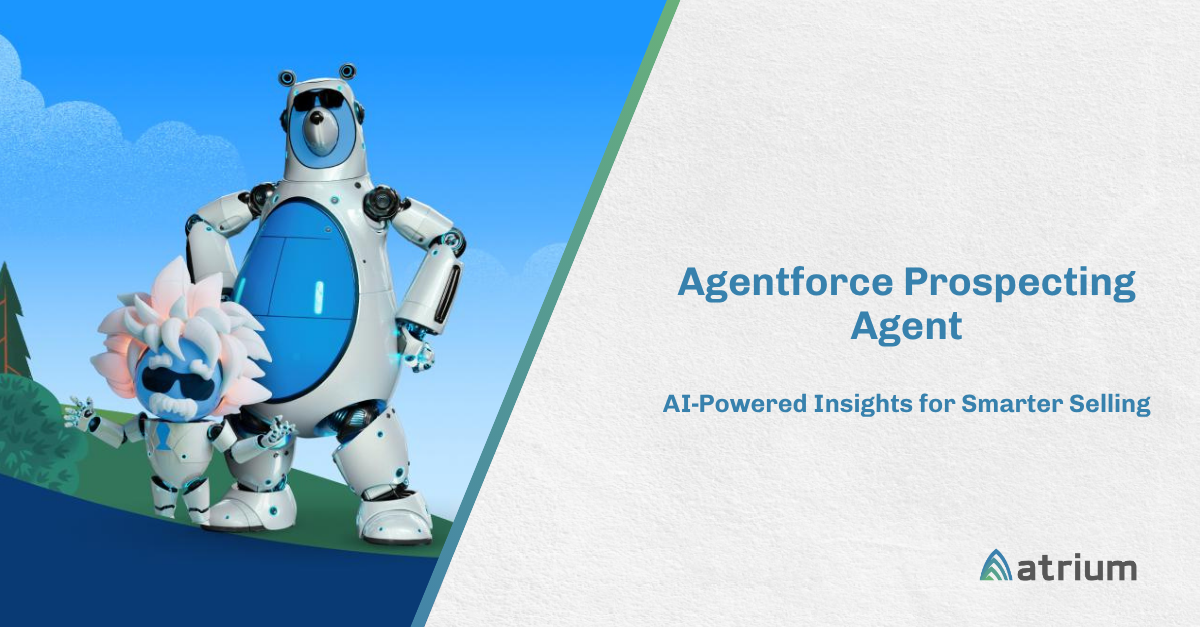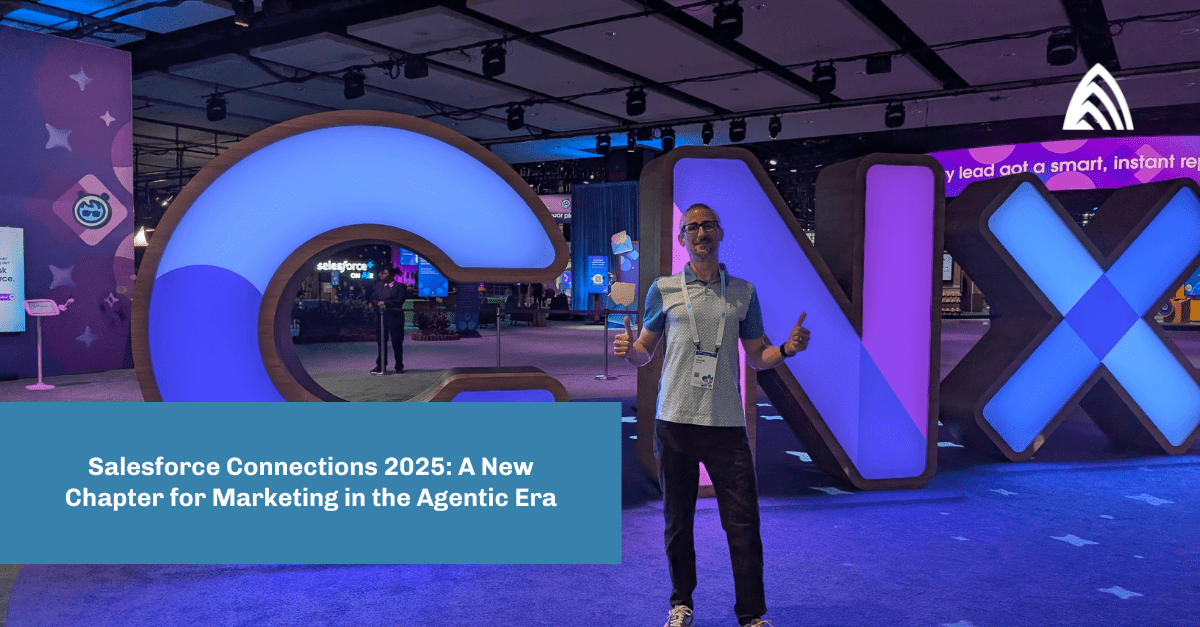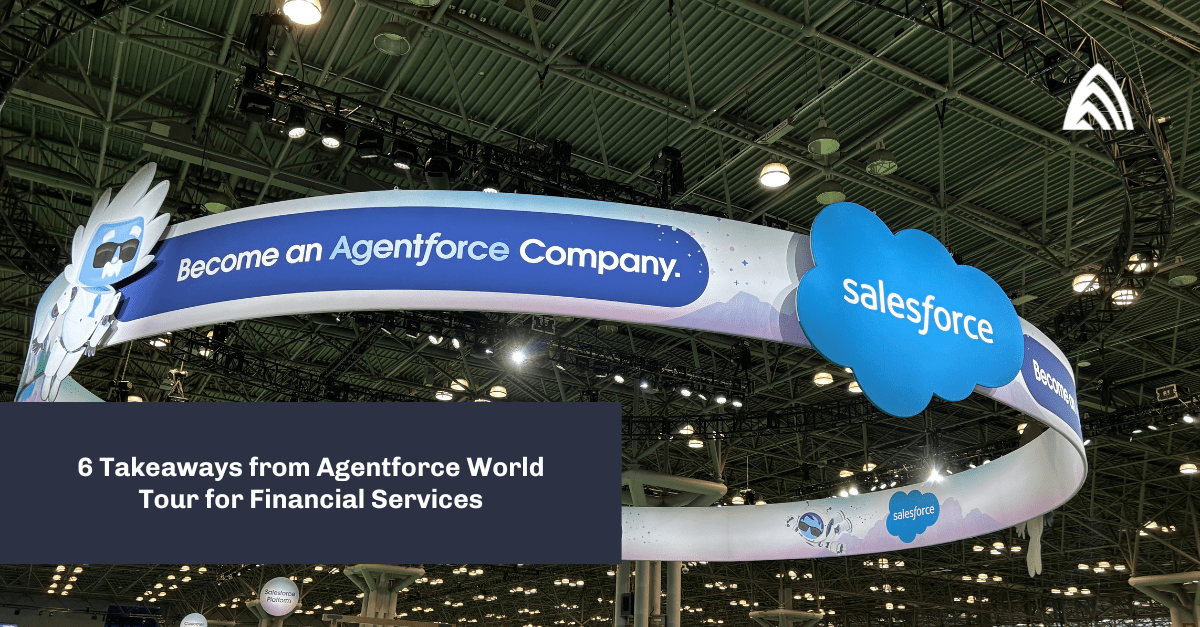73% of CMOs feel pressure to do more with less to deliver growth for their businesses, according to Gartner’s 2024 CMO Spend and Strategy Survey. That sentiment continues into 2025, as an uncertain economy leaves many marketing teams dealing with budget cuts or strained resources.
When you’re asked to do more with less, automation and AI-driven experiences can provide the efficiency boost your team needs. Salesforce has gone all-in with data and AI-driven solutions for marketers, with an expanding solution set for Marketing Cloud. But with so many products under the MC umbrella, it can be a bit challenging to understand what tools perform which tasks, how platforms like Data Cloud come into play, and how to plug in the right solutions to meet your needs.
Let’s start with the basics: What is Salesforce Marketing Cloud?
Over the years, Salesforce has acquired a handful of marketing technologies with the goal of expanding the core functionality of their CRM platform, allowing their customers to address the full relationship with prospects and clients incorporating the ability to communicate digitally at scale. Salesforce Marketing Cloud comprises five main product offerings:
- Marketing Cloud Engagement (MCE)
- Marketing Cloud Account Engagement (MCAE)
- Marketing Cloud Growth/Advanced Editions
- Marketing Cloud Personalization (MCP)
- Marketing Cloud Intelligence (MCI)
Let’s take a look at each of the product offerings and break down what they do and how they enable marketers today. We’ll also touch on overlapping capabilities for the first three, and how Marketing Cloud Personalization and Marketing Cloud Intelligence complement them.
Marketing Cloud Engagement (MCE)
Marketing Cloud Engagement is a powerful cross-channel marketing automation platform that enables businesses to create and deliver personalized customer journeys. With MCE, marketers can activate relevant customer data, engage with hyper-dynamic content, and maximize effectiveness with AI-powered insights.
MCE supports a wide range of channels, including email, SMS/MMS, push notifications, WhatsApp, digital advertising, web, and additional channels through custom development. It provides unmatched reliability and scale, allowing businesses to start small and grow without limitations. The platform’s built-in AI and intelligence capabilities help marketers save time and improve performance, driving customer lifetime value and reducing costs.
While MCE is primarily geared towards B2C use cases, it is not exclusive to this market and can be adapted to various business needs. With its open architecture and extensive API capabilities, MCE provides enormous extensibility, allowing businesses to integrate with various third-party systems and create custom solutions.
Marketing Cloud Account Engagement (MCAE)
Marketing Cloud Account Engagement is a B2B marketing automation platform that empowers revenue teams to work more efficiently and effectively. MCAE provides a shared view of customer data, enabling personalized outreach across marketing, sales, and service.
With AI-powered lead scoring and real-time campaign insights, MCAE helps sales prioritize leads, accelerate deal velocity, and optimize marketing performance. By aligning marketing and sales on a single platform, MCAE drives efficient growth, improves lead conversion, and helps businesses win more customers. It’s a comprehensive solution for lead nurturing and revenue generation, with easy-to-deploy assets (e.g., web tracking code, embedded forms, landing pages, etc.) to understand prospect activity and prioritize outreach efforts.
Marketing Cloud Growth/Advanced Editions
Salesforce’s homegrown new offering is designed specifically for small to medium-sized businesses (SMBs) that have Sales/Service EE and UE editions and are new to Marketing Cloud. They leverage the power of Data Cloud and AI to provide marketers with tools to streamline campaign creation, personalize customer journeys, and gain valuable insights into marketing performance.
Some of its key features include Einstein Co-Create for campaign asset creation, Segment Creation for defining target audiences, Content Creation for drafting email copy, and Einstein Send Time Optimization and Engagement Frequency (Advanced) for maximizing email engagement.
While currently focused on SMBs, Marketing Cloud on Core is expected to evolve with additional features and editions for larger businesses in the future and deliver on the promise of GenAI for everything. Relying on Salesforce Flow for orchestration and automation, it is well-positioned to evolve with much deeper integration with CRM capabilities.
Thus far, we are describing products that overlap in core capabilities. They are outbound messaging tools with a strong focus on Email Marketing (both MCE and MCAE were primarily “Email as a Service” providers and, in fact, became Salesforce products as part of the same acquisition). MC on Core’s evolution will likely circumvent the classic positioning of MCE (B2C) vs MCAE (B2B) to address both market segments. However, the maturity and specificity of the other two systems will continue to position them as very strong offerings depending on business use cases.
Complementing and enhancing the capabilities of the above offerings, we have:
Marketing Cloud Personalization (MCP)
MCP is a real-time interaction management platform that enables marketers to deliver personalized experiences across every customer touchpoint. MCP uses real-time behavioral data, AI-powered recommendations, and a 360-degree customer view to tailor content, offers, and experiences for each individual. This allows marketers to create moments that drive conversion, order value, and customer loyalty.
MCP’s key capabilities include capturing individual insights, optimizing experiences with AI, stitching anonymous and known profiles, coordinating engagement across channels, and testing and analyzing experiences. With its ability to react in milliseconds to customer behavior and deliver the right experience, MCP helps businesses build stronger customer relationships and achieve significant improvements in engagement, conversions, and loyalty. It currently sits within the MCE interface, but is a separate offering (although in combination with MCE, it creates an unparalleled turbocharged 1to1 customer experience system).
Marketing Cloud Intelligence (MCI)
Marketing Cloud Intelligence connects and unifies data from all marketing sources, providing a single source of truth for marketers. MCI offers seamless connectivity to common marketing data sets and customized tools to ingest data from any source. It includes comprehensive marketing API integrations, automated data modeling, one-click dashboards, customizable visualizations, shareable reports, and AI-driven insights.
With MCI, marketers can integrate all their marketing data, harmonize and calculate it, and then analyze and understand it. MCI helps marketers optimize their marketing budget, eliminate waste, and increase customer engagement. This is primarily a reporting and analytics tool that complements and completes the Marketing Cloud offering with a holistic view of all performance, and it may rival CRMA and Tableau, although it’s oriented more towards marketing.
Meet Marketing Cloud’s best friend, Data Cloud
All MC products have some form of connection with Salesforce Data Cloud. Typically, this means connectors for ingesting engagement data and creating user-friendly activations for enriched segmentation and campaign targeting. Data Cloud benefits greatly from layering engagement data with other sources to enrich individual profiles and can use these combined sources to activate ultra-targeted segments back to the MC platforms.
With the orchestration, personalization, and testing capabilities afforded in Marketing Cloud, this creates a virtuous loop of reciprocal sharing that constantly fine-tunes the understanding of customer behavior, preferences, and intent. The promise of true personalization is realized in spades!
How does MC solve current-day marketing problems?
Marketers across all industries and company sizes face similar challenges in today’s competitive landscape. These challenges include meeting customer expectations for personalized experiences, connecting messages across multiple channels, dealing with legacy systems and siloed data, and navigating privacy regulations as well as managing consent.
The choice of Marketing Cloud products depends on the specific challenges and needs of a business. In some cases, businesses may benefit from using multiple Marketing Cloud products together.
For example, a company could use MCE to build customer journeys and MCP to personalize those journeys further with real-time data and AI-driven recommendations, both within the journey messages as well as the connected experience on the web or in the app. They may also leverage MCI to unify performance data across marketing channels and systems and evangelize their success with the greater company.
By understanding the specific challenges and opportunities facing marketers and by leveraging the right combination of Marketing Cloud solutions, businesses can achieve significant improvements in engagement, ROI, efficiency, and overall marketing performance.
Salesforce Marketing Cloud consultants with Data Cloud and AI expertise
Optimized marketing starts with unified data. At Atrium, we align everything we do with your business objectives and data-driven outcomes. Our Salesforce experts know how to configure marketing systems to elicit success in these domains, with your specific industry and workflows in mind.
Learn more about our Marketing Cloud consulting services or contact our team to get started.








